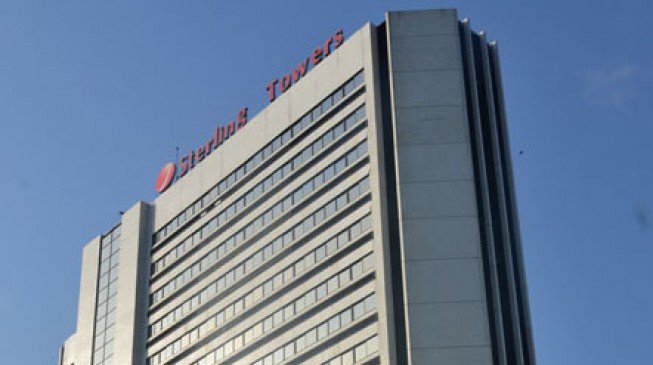Grant Properties Limited, a property development company, has accused Sterling Bank of excising 10 hectares — which land it values at N5 billion, from a 50-hectare collateral and illegally selling it for pittance to a front company of a very senior director of the bank.
National Daily gathered the business deal involving the firm and Sterling Bank started way back in 2002 when Grant Properties secured a 50-hectare land in Lekki, Lagos state, to build “Victory Park Estate”.
The firm, it was gathered, approached Unity Bank, Skye Bank, Wema Bank and Sterling Bank for an N8 billion ongoing loan to partly fund the project, transferring the shares in its subsidiary, Knight Rook Limited, to the banks as security for the loan.
The Grant Properties loan, which had gone bad, was transferred to the AMCON in 2011. At the time, the CBN had spent over $6.8 billion of tax payers’ funds purchasing the non-performing loans from failed banks.
Grant Properties was informed by Skye Bank, one of the banks financing the project, that it had assigned its own share in the project loans to AMCON.
National Daily gathered that the property company then approached AMCON with a proposal to finance the project and repay the loan. AMCON, however, advised the company to wait for other banks to transfer their share of the loans before entering negotiations with the corporation.
In handing over the debts to AMCON, Sterling Bank and others were required to transfer all Grant Properties’ collateral to the corporation.
ALSO SEE: AfDB plans 25m jobs for youths
Sterling Bank was expected to transfer, alongside the loan, every part of the land to AMCON, but it was discovered that the bank left out 10 hectares which it had sold to the Real Estate Development (RED) Company — said to be a front for a very senior director of the bank.
According to the Chairman of the firm, Olajide Awosedo, Sterling Bank moved the loan to AMCON, but rather than transfer all the collateral with the loan, it withheld the 10 hectares its director had his eyes on and sold it to him through a surrogate company owned by the director and his associates.
He also alleged that the director initially sold the land to his front company at N18,500/sq. metre, amounting to N1.85b for the 10 hectares — a far cry from the market worth of N5 billion, according to him.
About 2.4 hectares from the land was immediately sold to UAC Properties Development Company (UPDC), another property development company owned by UAC Plc, at a higher rate of N26,000/sq. metre. It was this that became the subject of litigation that ended in favour of Grant Properties.
The remaining 7.6 hectares were developed by Aircom Nigeria Limited, an estate development company, which built the “Cardogan Estate.”
It was also gathered that Grant Properties filed an action at the Lagos high court to challenge the sale of 2.4 hectares of the 10 hectares to UPDC in 2011. Six years after — precisely on June 2, 2017 — the court ruled that the land was sold by Sterling Bank after the banks had assigned the company’s loan to AMCON.
The court also held that the documents of the sale were signed by Yemi Adeola, Managing Director, and Justina Lewa, company secretary of Sterling Bank. The bank, the court ruled, had acted alone as the other banks were not part of the sale.
While Grants Properties pursued the case, Idowu and UPDC had continued developing the land — in defiance of two court orders obtained in 2012 ordering all parties to stop construction activities on the disrupted 10 hectares pending determination of the case.
Meanwhile the bank has denied any wrongdoing. According to the bank’s spokesperson, Olubukola Adejokun, the proceeds of sale of the 10 hectares was passed to Grant Properties/Chief Awosedo for onward transmission to the subscribers that had demanded for a refund.
The bank also said the 10 hectares was sold to RED and not Idowu, although it was silent on the beneficial owner of RED.
Asked if the sale was is in line with the AMCON Act which states that an eligible financial institution, Sterling Bank and others in this case, must hand over all assets to the corporation, Sterling Bank said “the 10 hectares had been sold before the transfer of loan to AMCON and therefore did not form part of the assets transferred to AMCON by the consortium of banks”.
The bank also said that it is not true that the court pronounced the sale illegal.

 Health7 days ago
Health7 days ago
 Crime1 week ago
Crime1 week ago
 Latest1 week ago
Latest1 week ago
 Latest6 days ago
Latest6 days ago
 Health6 days ago
Health6 days ago
 Business1 week ago
Business1 week ago
 Football1 week ago
Football1 week ago
 Football1 week ago
Football1 week ago









